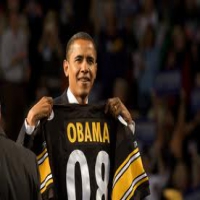Rapid Adoption Cynthia Lum, a professor at Geor
Post# of 5428

Rapid Adoption
Cynthia Lum, a professor at George Mason University, did a study in 2010 estimating that about 37% of large police departments were using plate readers. "It's one of the most rapidly diffusing technologies that I've ever seen," says Ms. Lum, a former police officer and deputy director of the Center for Evidence-Based Crime Policy.
Three Years of WSJ Privacy Insights
The Wall Street Journal is conducting a long-running investigation into the transformation of personal privacy in America.
Selected findings:
- Google bypassed the privacy settings on millions of Web browsers on Apple iPhones and computers— tracking the online activities of people who intended that kind of monitoring to be blocked. (2/17/12)
- The government follows the movements of thousands of Americans a year by secretly monitoring their cellphone records . (9/9/11)
- iPhone and Android apps secretly shared data about their users, a Journal investigation found. (12/10/10)
- Top apps on Facebook transmit personal identifying details to tracking companies, a Journal investigation found. (10/18/10)
- One of the fastest growing online businessesis that of spying on Americans as they browse the Web. (6/30/10)
- Plus, the global surveillance bazaar , a secretive phone-tracking "stingray" and RapLeaf's clever way of figuring out Web surfers' real names .
- See full privacy coverage
A few states have guidelines for using the scanners. New Hampshire bans them. Maine requires data to be purged after 21 days unless it is part of an investigation. New Jersey requires officers to have "specific and articulable facts" of "possible criminal or terrorist activity" before looking up a car owner.
Some towns have turned down the systems. "It went beyond my sense of what we needed to do to make us safer," says Neil Fulton, the town manager of Norwich, Vt., pop. 3,414, which rejected a grant for a plate reader in April.
But many departments embrace the technology. The sheriff's department in Riverside County, Calif., which is home to about 2.2 million people, has been using automated plate readers since 2007. According to Riverside County Sheriff's Department Sgt. Lisa McConnell, "The database is available to any of our officers in the furtherance of their professional duties." The department intends to keep the records indefinitely, she says.
The Journal obtained the database (minus each car's location) through a public records act request. The tracking system isn't perfect. "It picks up any words on a reflective background," says Gary Schreiner, a technician at the sheriff's department.
As a result, some common road signs show up in the database. "ONEWAY" appears 13,873 times. In addition, some of the most-tracked plates were other government vehicles, which are identifiable by their special tags in California.
Some Riverside County residents voiced surprise that their plates are being captured. "Not knowing about it makes me feel a little uneasy," says Virginia Rose, an 86-year-old resident of Idyllwild. Her plate appears in the database four times.
Still, she said she figured it was helpful for the police. "Usually I go along with whatever police enforcement needs to do to keep us safe, so I figure they must have people stealing cars and that sort of thing," she says.
Officers can also tap private license-plate location databases such as the two being built by former repossession agents, Digital Recognition Network Inc. of Fort Worth, Texas, and MVTrac of Palatine, Ill., a unit of MVConnect.
MVTrac's Mr. Jackson, spent more than 20 years in the repossession business, says that at first he saw plate readers simply as a way to help find cars he was trying to repossess. Then he realized the opportunity to build a national network.
He began installing cameras on the vehicles of other auto-recovery agents, who pay subscription fees to use the cameras. MVTrac says hundreds of its systems are operating nationwide. The camera systems give drivers an instant alert when they scan a car wanted for repossession. The alert doesn't include the owner's identity. Agents also get a commission when a finance company buys data about a plate they scanned
 (0)
(0) (0)
(0)![[image]](http://si.wsj.net/public/resources/images/P1-BI343_WATCHE_A_20120928213502.jpg)